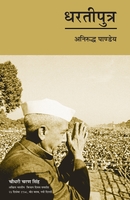In Stockस्टॉक में
Chaudhary Charan Singh wrote this book before the 1984 Lok Sabha elections, and it was published by the then Managing Trustee of the Kisan Trust, the late Ajay Singh. Upon reading it, you will realise that there are only a few politicians in India who have or have such deep thinking. This booklet reflects Chaudhary Sahab's 50 years of contemplation. We hope that through this, readers will be able to see the rationale behind the plans of independent India from Chaudhary Sahab's perspective and understand the correct direction for India's economic development.
Singh believed that the basic structure of a politician's life should be based on pure conduct and moral values, and that public and private life should be the same. He believed in the unity of speech and action, viewed politics through the lens of religion and morality, and seriously contemplated making the country prosperous and capable.
Charan Singh was a Gandhian thinker, far beyond merely being a supporter of villages. Today, the public remembers Chaudhary Sahab as a 'Kisan Leader,' but in a way, this overlooks the broad thinking of his long public life. He advocated for policies that would meaningfully contribute to eradicating poverty, unemployment, economic and social inequality, and deprivation in the country, and simultaneously strengthen our young democracy. The essence of these policies was the broad economic development of the country and villages based on agriculture, and providing ample employment in household, small, and cottage industries located in villages for the landless society and surplus labour in agriculture. He was not against large industries; influenced by Gandhi's thinking, he wanted industries and machines in the country that would not replace jobs. In his vision, to implement these Gandhian policies, society would need to bring a revolution in its development perspective, and government institutions would need to invest heavily in these areas.
Since the political independence of 1947 till today, all political parties, politicians, and most intellectuals—capitalist, socialist, and communist—have supported large industries and urbanisation. If we open the windows of our minds and see the world from a Gandhian perspective, not from any foreign and inappropriate viewpoint, we will realise that even in 2022, Chaudhary Sahab's core policies are relevant and will remain so for decades.
Please note that we
- Deliver within 1 week of receipt of order.
- Do not ship outside India.
- Do not accept returns and do not offer exchange of books.











